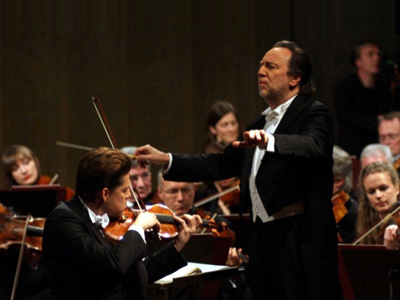By Sedgwick Clark
Next week, for the first time as a citizen of New York County, I shall descend to the lower depths of Manhattan and perform my solemn rite of jury duty without the concomitant joy of combing through the record bins of J & R Music. J & R closed its classical department early last year, leaving Academy Records and CDs on 12 West 18th Street as the sole remaining retail store for New York’s serious classical-music record collectors. For shame!
The closing of a treasured book or record store is no less indicative of mortality than an obit page. Last week the esteemed Berkshire Record Outlet announced that it would close its retail store at the end of this month and henceforth operate solely as a fulfillment operation. A record-collector mecca since 1974, the BRO was a “must visit” whenever I went to Tanglewood in the summer (an increasingly rare pleasure in the past two decades). One saw Boston Symphony players, visiting soloists, concert-going friends from New York, Boston, and the outlying area, and, above all, bins of recordings on various labels that rarely reached these shores.
It was shocking when Discophile, on Eighth Street in Greenwich Village, went out of business in 1984, not long after Tower Records blew into town from the West Coast. Discophile’s owner, Franz Jolowicz, angrily prophesied that it would wipe out all the City’s specialized record stores because they couldn’t compete with Tower’s huge stock and markdown prices. He was right, of course. And I was a turncoat customer because Lincoln Center’s Tower branch claimed to carry every record currently in the catalogue—and it was only a block from my apartment! How could I resist?
When Barnes & Noble opened a vast, four-story branch across the street from Tower in 1995, Lincoln Square seemed perfect. I was in pig heaven for a fleeting decade. But Tower bit the dust in late 2006 as the record industry faced its own customer crises. A Raymour and Flanigan furniture store currently occupies the building. The Barnes & Noble at Lincoln Center had the same problem, bookwise, but its downstairs was a decent record and video department, and I spent a fair amount there in lieu of Tower. It closed in February 2011, destined to be a Century 21 department store. I avert my eyes when I walk by those stores.
Looking Forward
My week’s scheduled concerts (8:00 p.m. unless otherwise noted):
3/20 Carnegie Hall. St. Louis Symphony Orchestra and Chorus/David Robertson; Katie Geissinger and Theo Bleckmann (vocalists). Debussy: Nocturnes. Meredith Monk: Weave (New York premiere). Tchaikovsky: Symphony No. 4.
3/21 at 8:30. Iridium. David Chesky’s Jazz in the New Harmonic.
3/24 at 7:30. Avery Fisher Hall. New York Philharmonic/Alan Gilbert; Inon Barnatan, piano. Salonen: Nyx. Ravel: Piano Concerto in G. Debussy: Jeux. R. Strauss: Der Rosenkavalier Suite.
3/26 at 7:30. Avery Fisher Hall. New York Philharmonic/Alan Gilbert; Leila Josefowicz, violin. Lyadov: The Enchanted Lake. Stravinsky: Petrushka (1911 version). John Adams: Scheherazade.2 –Symphony for violin and orchestra.
3/27 at 2:00. Verizon Hall at the Kimmel Center, Philadelphia. Philadelphia Orchestra/Gianandrea Noseda; Carol Yantsch, tuba. Michael Daugherty: Reflections on the Mississippi, for tuba and orchestra. Mahler: Symphony No. 5.





Gergiev Prep Hours Clarified
March 13th, 2015By ANDREW POWELL
Published: March 13, 2015
MUNICH — This morning the Munich Philharmonic detailed the rehearsal hours put in by Valery Gergiev for a Stravinsky program here in December 2013. They totaled 14¼, a lavish allocation by the heavily branded maestro given his skimpy work in Poland and Russia the same week, to wit:
Dec. 11, 2013 — day of “unexpected circumstances”
Dec. 12, 2013 — Warsaw: sole local Gergiev rehearsal for Iolanta and A kékszakállú herceg vára, postponed by a day
Dec. 13, 2013 — Warsaw: opening night of Tchaikovsky-Bartók double bill
Dec. 14, 2013 — flight to St Petersburg; evening: Verdi Requiem
Dec. 15, 2013 — St Petersburg: La traviata
Dec. 16, 2013 — flight to Munich; late afternoon: 5¾ hours rehearsing Stravinsky
Dec. 17, 2013 — morning: 6 hours of rehearsals; afternoon: news conference about pedophilia, Putin, and so on
Dec. 18, 2013 — morning: 2½ hours of rehearsals; evening: Stravinsky concert
The rehearsal details, a response to a question last year, arrived after a vague outline from the orchestra of its quantitative expectations of Gergiev. Late this month the MPhil will announce its first season with the Russian conductor as Chefdirigent, and in May an ad hoc conference is promised at which he will reveal his long-term Ideen, Ziele und Projekte for Munich.
Photo © Wild und Leise
Related posts:
Busy Week
Concert Hall Design Chosen
Maestro, 62, Outruns Players
Jansons! Petrenko! Gergiev!
Pintscher Conducts New Music
Tags: Commentary, München, Münchner Philharmoniker, Munich, Munich Philharmonic, Polish National Opera, Teatr Wielki, Valery Gergiev, Warsaw
Posted in Munich Times | Comments Closed